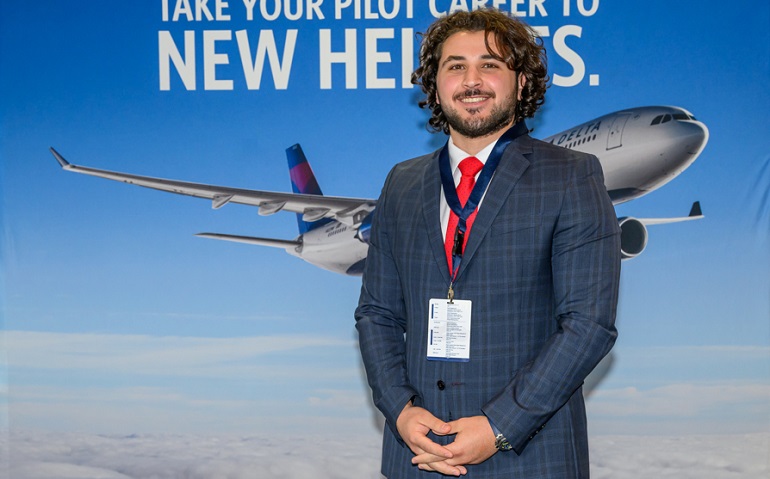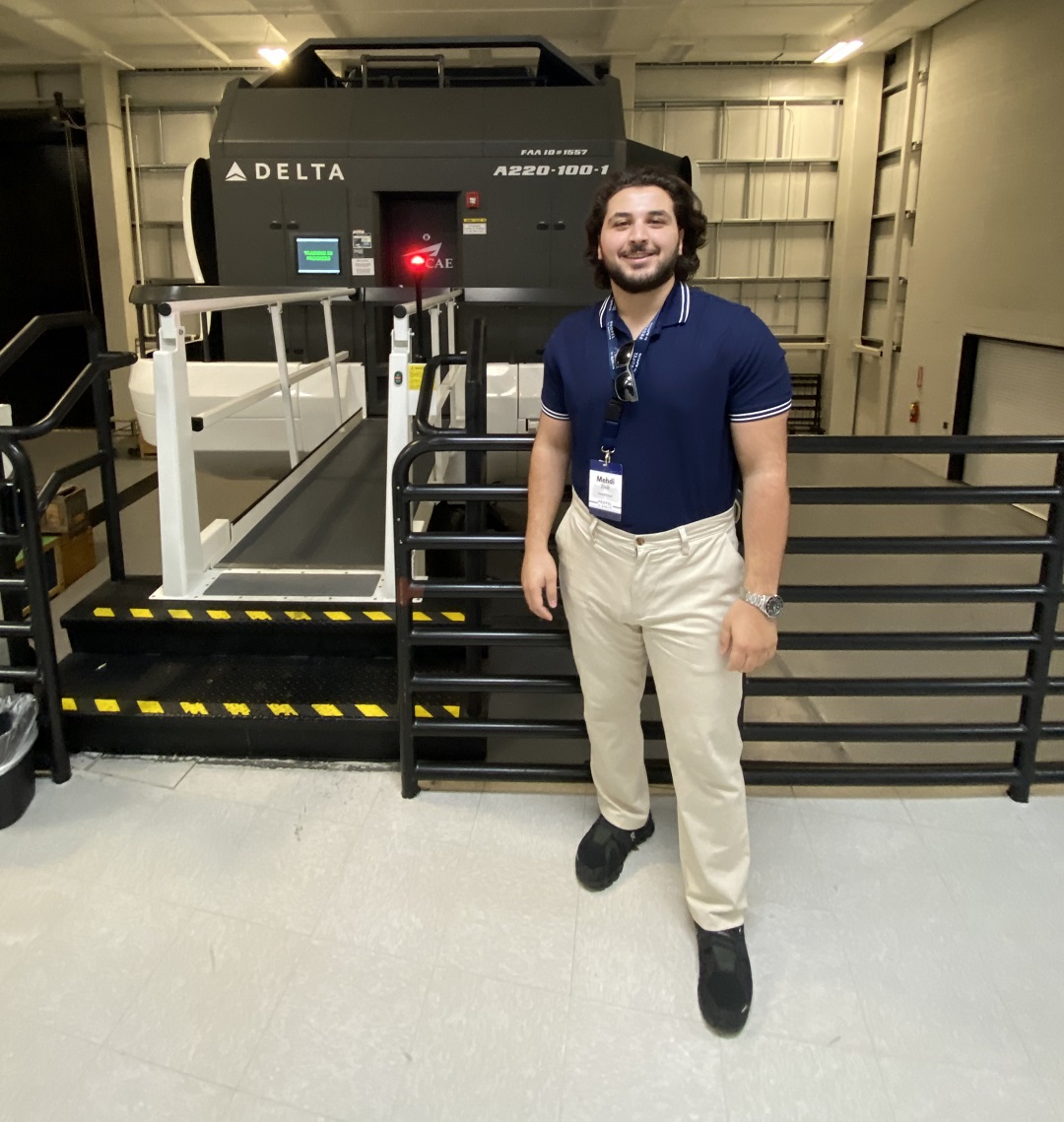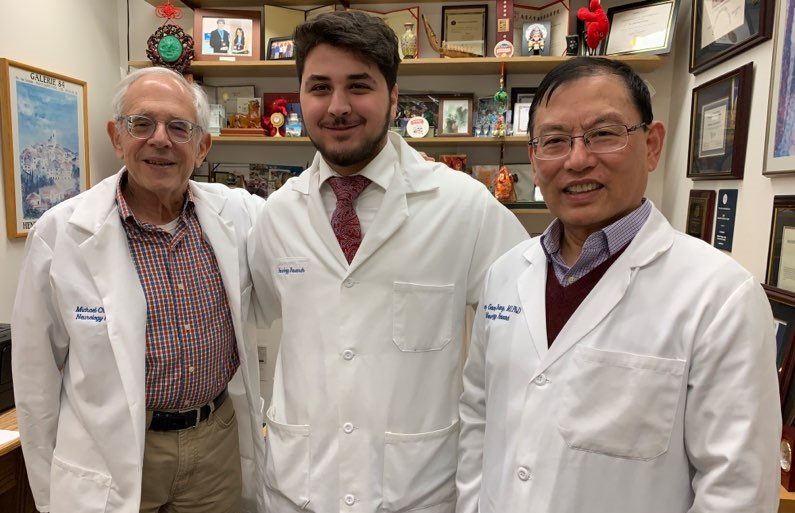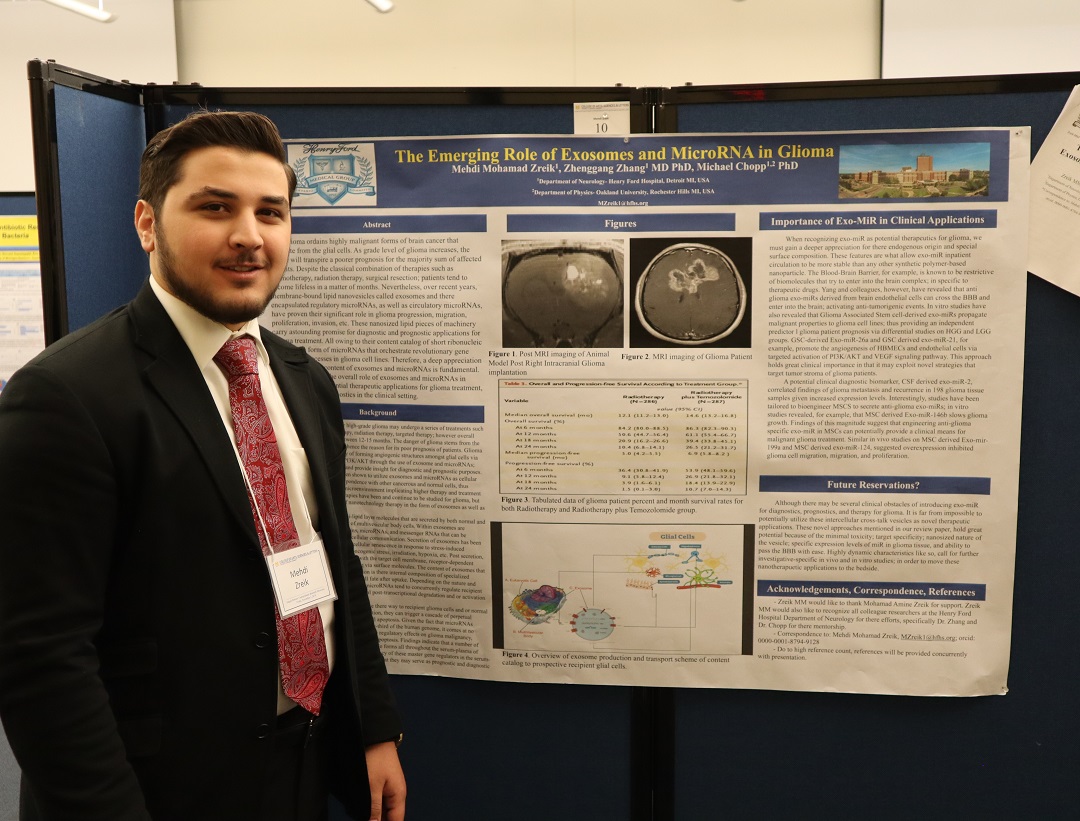
Mehdi Zreik is ready to soar.
The 24-year-old is expected to begin his doctoral studies at the Wayne State University School of Medicine this fall, with a focus on aerospace physiology and space medicine in the Department of Physiology. But first, he’ll train to fly high, as a newly-winged pilot for Delta Air Lines.

Zreik’s commercial pilot training began with a winging ceremony last November in Delta’s headquarters in Atlanta. He is one of only 55 in his cohort of 3,000 applicants, and among the youngest.
He embarked on the Delta Propel Collegiate/Company Path Program in Detroit this month. The seven-month program is accelerated, averaging two to three flights a day, plus ground school.
“This opportunity allows me to transition from the medical bedside to the cockpit,” he said. “I'll eventually find myself piloting Delta's Connection Carrier Challenger 900 aircraft and transitioning to wide-body aircraft like the A320/1, A350, B757, B767, B737 and B717.”
Zreik’s vision for the future includes leveraging his extensive experience in jet aircraft and academic understanding of human systems to contribute to government agencies involved in space exploration.
Initially drawn toward the potential of a career as a physician-scientist, he pivoted to pursue aviation full throttle, dreaming of a path that would lead him to a career as a pilot-aerospace physiologist.
Zreik is a son of immigrants from war-torn southern Lebanon. The family moved to the United States, specifically Dearborn, Mich., in the 1980s. He grew up in what he described as a traditional Middle-Eastern household. He is the first pilot in his family, and wasn’t exposed to piloting until taking a discovery flight with a flight instructor a few years ago.
He was hooked.
While Zreik always had a love for aviation, science was his pursuit academically. He graduated from Fordson High School in Dearborn, earned his bachelor’s of science degree from the University of Michigan, and later, a master’s of science degree in Basic Medical Sciences from the WSU School of Medicine in 2022.
Twenty months ago, he was accepted to an eight-year M.D.-Ph.D. program. He applied for flight school soon after.
“I'm really throwing a dart here,” he recalled. “Maybe it lands, maybe it doesn't, and that's okay. But in the back of my mind, if this happens? My dad calls it a fairy tale, and it really is.”
Following months of rigorous assessments, interviews and testing at Delta headquarters in Atlanta last year, Zreik was offered a guaranteed job offer, a testament to his dedication and determination.

“It was a big move to a different world, but it was one that made me realize my greatest potential in stimulating my intellectual curiosity,” he said. “The mystery of flight and microgravity on the human body is a mystery I’m ready to solve day by day. To know there are galaxies to be explored excites me to look to the stars and beyond.
“My journey exemplifies the Wayne State Warrior spirit, as I continually strive to surpass boundaries and demonstrate that the impossible is indeed possible,” he added. “My love for Wayne State University is immeasurable, and it’s the faculty at the School of Medicine who have been instrumental in shaping my path. Their lifelong mentorship has not only honed my academic prowess but also nurtured my passion for making a difference in the world of medicine. It’s this deep connection and the inspiring environment at Wayne State that compel me to continue my graduate studies here.”
Zreik performed medical research at the Hermelin Brain Tumor Center in Detroit within the Henry Ford Department of Neurology and Neurosurgery throughout his undergraduate and graduate years. Under the mentorship of Michael Chopp, Ph.D., and Zhenggang Zhang, Ph.D., he contributed to novel therapeutics and diagnostics for a wide range of pathologies, including hepatocellular carcinoma (liver cancer), high-grade glioma (glioblastoma multiforme), traumatic brain injury, stroke, pancreatic adenocarcinoma, ovarian cancer and research related to SARS-CoV-2. (https://www.ncbi.nlm.nih.gov/pmc/articles/PMC7869574/).
His work led to several publications and patents in the field of cancer therapy. He presented his research locally and on the global stage at the Cancer Nanotechnology Gordon Research Conference, Stem Cells and Cancer Gordon Research Conference, and the 12th International Conference on Biomedical Engineering and Biotechnology in Macao, China, among others.

“It was also the research aspect of things that really had me thinking outside the box, to become innovative in finding solutions to complex problems. It really built my technical abilities and readied me to operate behind the flight controls and conduct my own research in the field of aerospace physiology-space medicine,” Zreik said.
He noted there is no “one-size-fits-all” when making tough decisions like he did in dropping his M.D.-Ph.D. program acceptance to pursue the stars.
The Department of Physiology, has a history of working with students to accommodate specific research interests. In Zreik’s case, his interest in aerospace physiology has physiology at its core, the aerospace aspect is extremely uncommon, according to department administrators.
“You have to find your why and direct all your effort toward it. Of course, take risk and seek discomfort, but be calculated and strategic in your efforts to reaching your goal,” he said. “I recognize that there will be ups and downs during my journey and my anticipated doctoral work here at the School of Medicine, but it’s those very ups and downs that shape me to be my very best; to have the resilience to push past life’s hardships. My doctoral work will be quite unconventional, as the physiology department does not have a foot in the aerospace-space medicine field, but they do have amazing faculty who will navigate me in ensuring I make my unique mark in the field. After all, smooth seas never make a skillful sailor.”